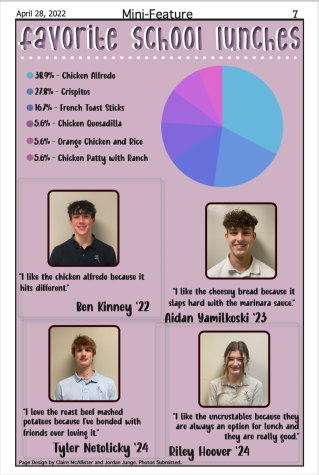Banning books, limiting voices
March 10, 2022
The Harry Potter Series, The Book Thief and The Hunger Games. These are all very different books but with one common theme: all three are banned one place or another. On February 3, Iowa Senate President Jake Chapman filed a bill that would allow punishment towards classroom teachers and administration for displaying books that contain “obscene” material. If this new bill is passed, teachers that violate it could face up to one year in jail and/or a fine of $2,500. The majority of this list of books is comprised of works from African American, LGBTQ+ identifying and Hispanic writers. Some books that are being questioned are The Hate U Give written by Angie Thomas, The Absolutely True Diary of a Part-Time Indian written by Sherman Alexie and All Boys Aren’t Blue written by George Matthew Johnson. In recent months, this bill has been the topic for school board meetings state wide. At some public school meetings, excerpts have been read that portray sexual assault, explicit images and anti-police actions. Parents are expressing concern that books with these types of material should not be put up for display in school libraries. Currently, parents have the option to go and challenge a book to school administration. However, Senate President Chapman is hoping to give parents the opportunity to take it to a judge. Chapman described the passion he has for this topic at a recent school board meeting in Johnston, Iowa. “Some teachers are disguising subject matter and profess it has artistic and literary value. Nobody, regardless of their race, religion, ethnicity, gender, sexual orientation or occupation has the right to expose children to obscene material,” Chapman said. This has led people to question what classifies something as obscene. The United States Supreme Court classifies materials as obscene only when there is no literacy, scientific, political or artistic value. If a book is presented to the court, it is looked at as a whole, rather than one singular paragraph depicting something uncomfortable. This is an important factor because, to some people, the controversial books tell a story people need to hear. Señora Jaclyn Richmond, Xavier High School World Language Department Chair, feels strongly about this topic. “They [banned books] challenge us to see a different perspective and analyze for ourselves if it upholds our personal morals and values. For some it is a mirror into their own lives that helps them feel seen, for others, it is a conviction that with that knowledge they can do better than what we have done in the past. For all, they can analyze if it is a book that they want to read in its entirety, or if they simply want to reshelve it,” Richmond said. As of late February, the bill is still alive in the legislature but, as the court session continues on, its fate is unknown.



